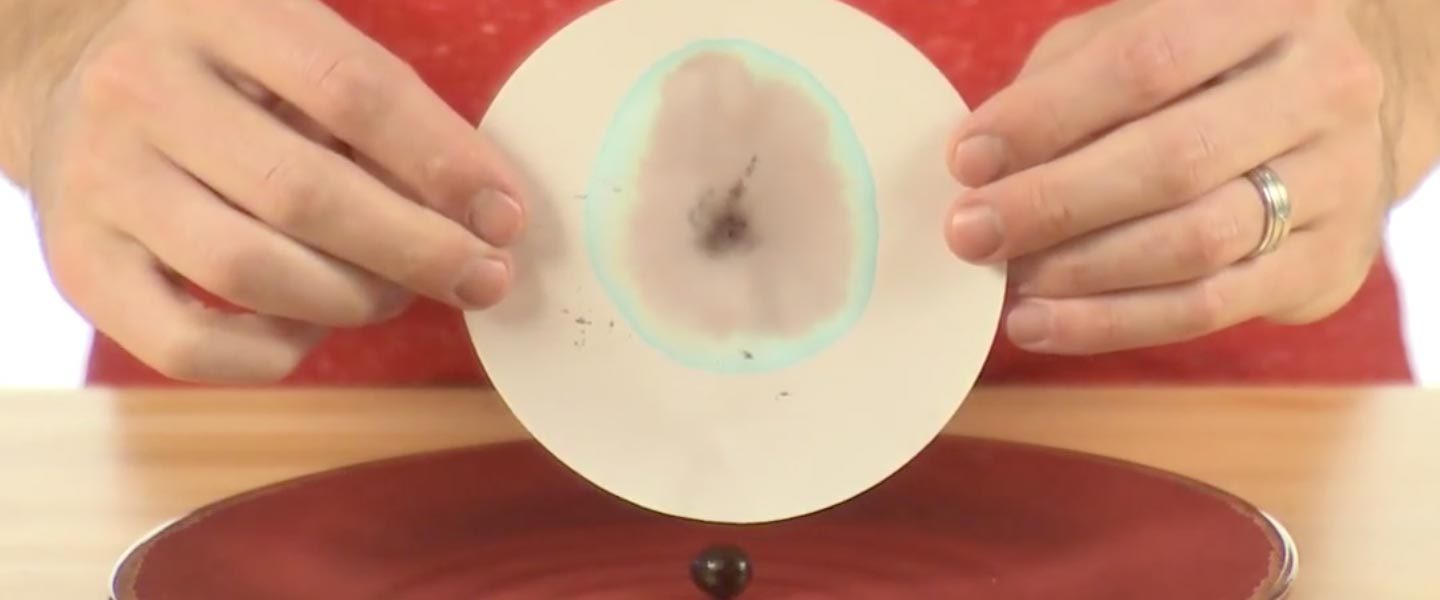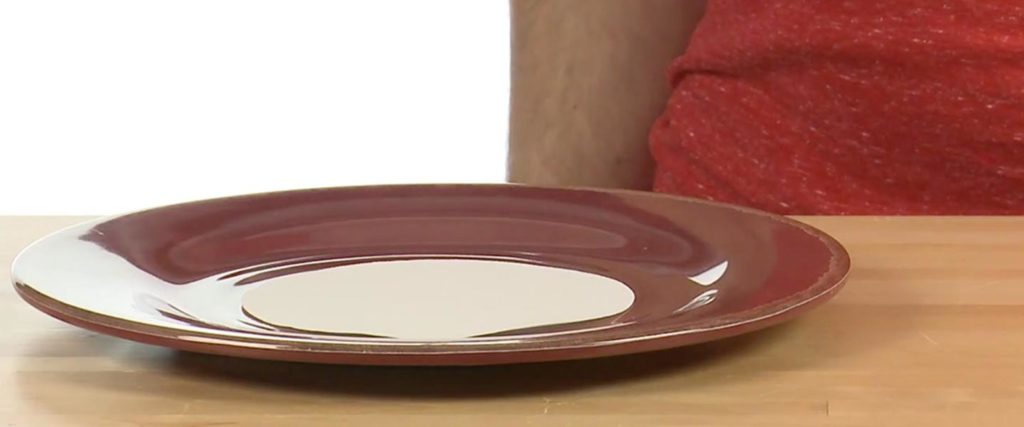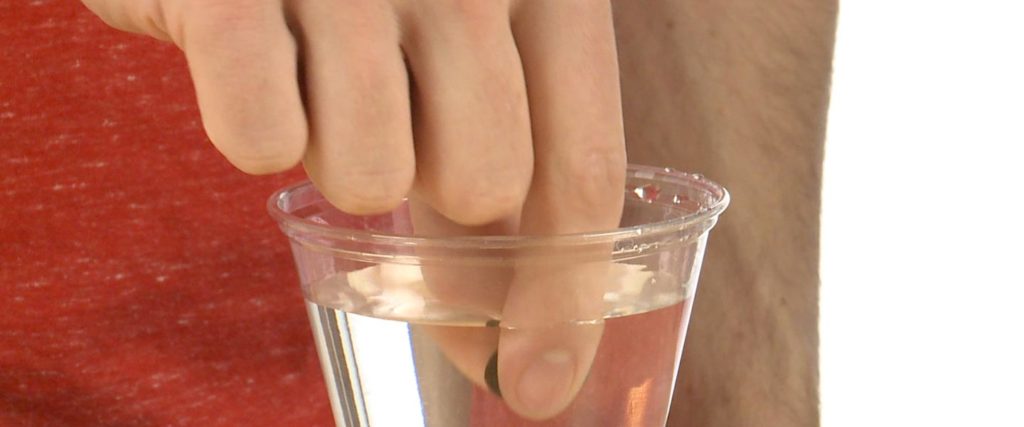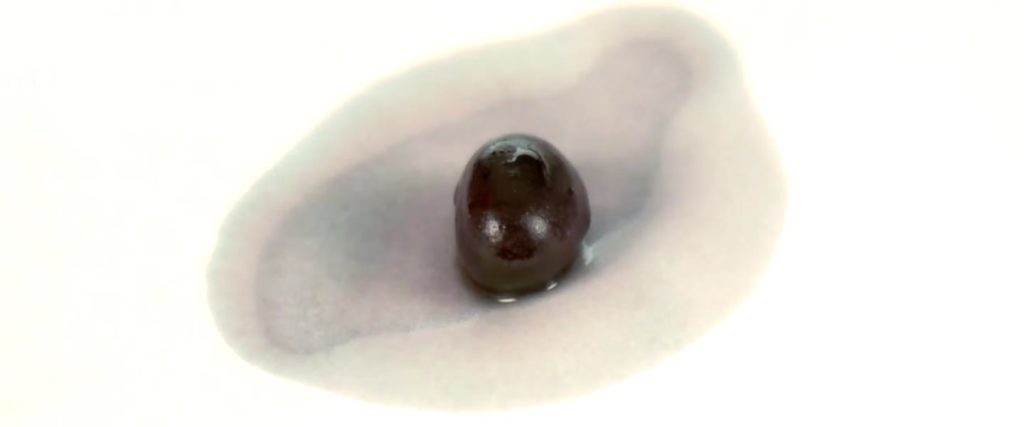Color Mixing Gobstoppers (Candy Science)
Hard candies are known for their bright colors, delicious tastes, as well as having a ton of sugar. While munching on a handful of candy […]

Candies come in all shapes and sizes. You might find spheres in all the colors of the rainbow or find tiny discs that are colored brown or white. But, do you know what makes those delicious little candies all those colors? With the Candy Chromatography experiment, we’ll show you how to reveal the hidden dyes in black jellybeans, so you can take the process and try it out on a bunch of your favorite candies!

Put a piece of filter paper so that it lays flat on the plate.

Drop the black jellybean into a cup of water for about 5 seconds.

Place the black jellybean in the center of the filter paper and allow it to sit for about 10 minutes.
Wow! Where are those colors coming from?
Using a solid support (like paper) to separate different kinds of molecules is called chromatography. Scientists use this method all the time in different experiments. YOU are a chromatographer by performing the Candy Chromatography experiment.
Although the black jellybean appears to be black, the dyes that comprise the color are actually many. You can see the different dyes as they move up the filter paper. These dyes separate from each other because some dyes are more attracted to the paper while others are more soluble in water. These differences result in varying distances from the jellybean.
What colors did you see?